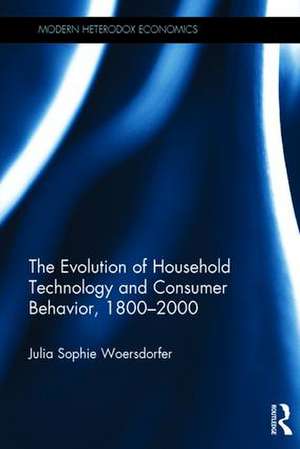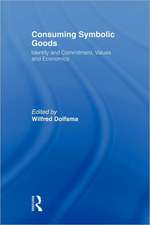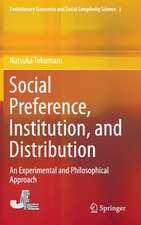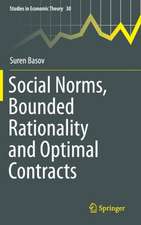The Evolution of Household Technology and Consumer Behavior, 1800-2000: Modern Heterodox Economics
Autor Julia Sophie Woersdorferen Limba Engleză Hardback – 16 mar 2017
The neoclassical economic framework of household production theory relates the increasing demand for household technology to rising wages and opportunity costs of time: the higher the wage rate, the more costly it is to spend time in unpaid housework activities. Consumer products are thus purchased to make household production processes more efficient and to substitute capital goods for the household’s time (time substitution hypothesis). Although this hypothesis sounds plausible at first sight, it cannot capture the essential phenomena underlying the complex process of the mechanization of the home over the past 200 years. Its major weakness lies in the treatment of consumer preferences, whose explanatory potential is explicitly factored out.
Using the washing of clothes as a microcosm of household economics, this book examines long-term changes in cleanliness consumption patterns from the perspective of an evolutionary economic, psychologically informed consumer theory. Woersdorfer shows how the historical evolution of cleanliness consumption over the past 200 years is the result of the interplay of supply and demand side factors, namely, technical change in washing technology on one side and motivational driving forces and consumer learning capabilities on the other. Hence, not changing relative prices but innate consumer needs and consumer learning processes, leading to a growing understanding of how to satisfy those needs, are the essential driving forces behind the rising technological endowment of the home and the corresponding demand for household appliances.
The Evolution of Household Technology and Consumer Behavior, 1800–2000 will be of interest to researchers in the field of evolutionary economics, history of technology, economic history, innovation economics and sociology.
| Toate formatele și edițiile | Preț | Express |
|---|---|---|
| Paperback (1) | 257.68 lei 6-8 săpt. | |
| Taylor & Francis – 30 iun 2020 | 257.68 lei 6-8 săpt. | |
| Hardback (1) | 765.01 lei 6-8 săpt. | |
| Taylor & Francis – 16 mar 2017 | 765.01 lei 6-8 săpt. |
Preț: 765.01 lei
Preț vechi: 1103.24 lei
-31% Nou
Puncte Express: 1148
Preț estimativ în valută:
146.38€ • 153.25$ • 121.12£
146.38€ • 153.25$ • 121.12£
Carte tipărită la comandă
Livrare economică 05-19 aprilie
Preluare comenzi: 021 569.72.76
Specificații
ISBN-13: 9781848935952
ISBN-10: 1848935951
Pagini: 238
Ilustrații: 18
Dimensiuni: 156 x 234 mm
Greutate: 0.5 kg
Ediția:1
Editura: Taylor & Francis
Colecția Routledge
Seria Modern Heterodox Economics
Locul publicării:Oxford, United Kingdom
ISBN-10: 1848935951
Pagini: 238
Ilustrații: 18
Dimensiuni: 156 x 234 mm
Greutate: 0.5 kg
Ediția:1
Editura: Taylor & Francis
Colecția Routledge
Seria Modern Heterodox Economics
Locul publicării:Oxford, United Kingdom
Cuprins
1 Beyond Time Substitution: An Evolutionary Economic Analysis into the Patterns of Cleanliness Consumption
2 Consumption Behavior as a Learning Process
3 The Origin of the Social Norm of Cleanliness
4 Toward the Modern Washday: Major Steps in the Development of Laundry Technology
5 Consumer Motivations and Washing Machine Advertisements
6 Patterns of Cleanliness Consumption and Time Use
7 Cleanliness Consumption and the Rebound Effect of Energy Efficiency
8 Explaining the Patterns of Cleanliness Consumption
2 Consumption Behavior as a Learning Process
3 The Origin of the Social Norm of Cleanliness
4 Toward the Modern Washday: Major Steps in the Development of Laundry Technology
5 Consumer Motivations and Washing Machine Advertisements
6 Patterns of Cleanliness Consumption and Time Use
7 Cleanliness Consumption and the Rebound Effect of Energy Efficiency
8 Explaining the Patterns of Cleanliness Consumption
Descriere
How has the washing machine changed the way we spend money? Using the washing of clothes as a microcosm of household economics Woersdorfer examines the evolution of technology and practice over a period of growing industrialization. This new evolutionary account of consumer behaviour marks a move towards a more individualistic approach to economics.





























